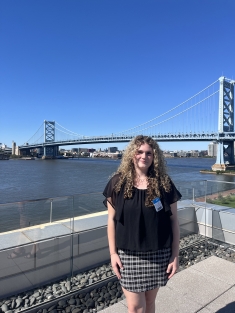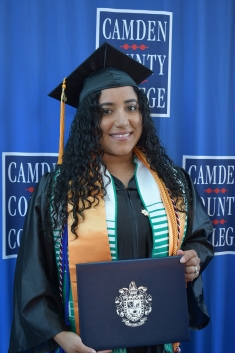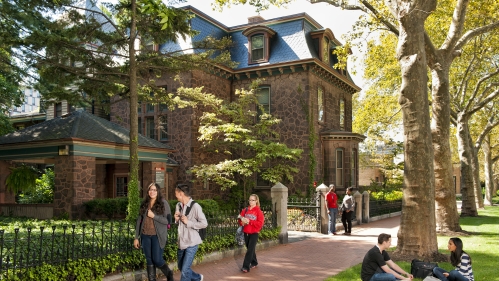Listen Now
Every year, about 1.2 million college students choose to transfer to a new institution, each with their own story and motivation. Some seek a stronger academic program or a change in major, while others look for a campus community that feels like a better fit. Many simply want to be closer to home.
For Rajaah Norman, a pre-nursing major with a minor in psychology at Rutgers University–Camden, the decision came down to growth and opportunity.
“I transferred to Rutgers–Camden because I wanted to continue my education at a university that offers strong academic programs, supportive professors, and opportunities for personal and professional growth,” she said.

Finance major Julianna Rossano was drawn to the close-knit community and the opportunities beyond the classroom.
“I chose Rutgers–Camden because of the close-knit community and the coziness of the campus,” Rossano said. “I also loved the appeal of the student-to-staff ratio, as well as the exciting opportunities offered to the School of Business students outside of classes.”
While transferring can inspire anticipation and excitement, it also comes with challenges—from navigating credit transfers to finding one’s place in a new community.
“I think the common misconception with transfer students is that coming into a university is not as difficult as it is for a first-year student because they have already had college experience,” said Randi Mayers, executive director of student academic success at Rutgers–Camden.
“While that may be true in a general sense, they don’t have experience as a Rutgers–Camden student,” Mayers said. “The experience is often different in terms of technology, resources, academic expectations, and rigor compared to their previous institution, which can be overwhelming.”
Mayers also noted that Rutgers–Camden’s transfer population is diverse, including both traditional students and those returning to complete degrees.
To support them, the university offers personalized guidance from the start. Prospective transfers can meet with admissions counselors and receive complimentary credit reviews to maximize the value of any previous coursework.
Once enrolled, transfer students benefit from the Center for Learning and Student Success (CLASS) at Rutgers–Camden, which provides personalized academic advising, peer mentoring, campus events, and community engagement opportunities.
“We offer orientations in both the fall and spring that provide an opportunity for transfer students to meet with support staff on campus and learn more about the resources available to them,” said Mayers. “We also have a dedicated Transfer Student Services office, which offers monthly programming focused on building community and opportunities to connect with other students.”
All incoming transfer students also work one-on-one with Kimberley Bowser, a senior program coordinator dedicated to transfer students. Throughout their first semester, she helps them identify and develop practical plans to achieve their personal, academic, and career-related goals.
Students say the effort to welcome them into the fold of campus life makes a difference.

“My experience at Rutgers–Camden has been great so far,” said Norman. “I've connected with other students through classes and campus events, and I really appreciate the welcoming and inclusive environment, available resources, and focus on student success.”
“Building those connections has helped to make the transition smoother,” said Alexandra Rios, a transfer student majoring in business and accounting. “I am proud to be part of the Rutgers–Camden community, where I’m building a strong foundation in accounting that will support my long-term career aspirations in finance and leadership.”



